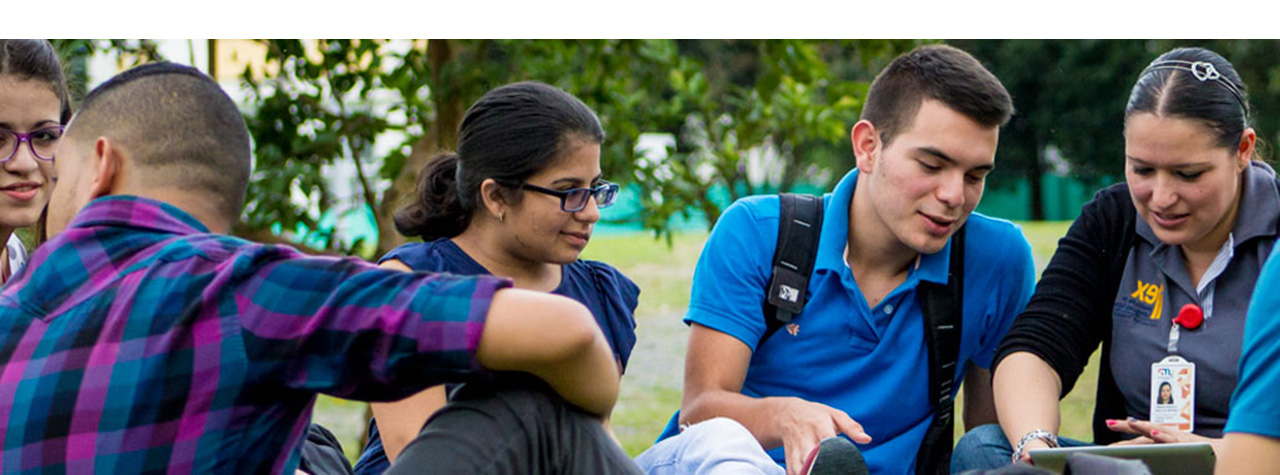|

|
| Contents |
Grammar and functions |
| The academic, professional, and personal lives of people from countries in all continents: their routines, study habits, salaries, expenses, liabilities, places where they work, things they possess, challenges and difficulties they face, etc. |
Using the verbs to be, to have, and to like to express facts about my personal, professional, and/or academic life and that of others. |
| Healthy lifestyles: keeping fit, healthy foods, healthy dietary habits, yoga, mental and physical health, etc. |
Using the present simple to express facts about my life and that of others, related to occupations, responsibilities, schedules, and past-time activities. |
| Current educational, technological, and scientific breakthroughs, ideas, and discoveries. |
Using there is, there are, some, any, a lot of, this/that, and these/those to express existence or lack thereof, to point to people, animals, and things and give information about them. |
| Language learning techniques: using memory well, reviewing notes effectively, using appropriate data sources, using the internet critically, being an autonomous learner, etc. |
Using can/can’t, could/couldn’t to express skills or lack thereof. |
| Current educational, technological, and scientific breakthroughs, ideas, and discoveries. |
Using the past tense (was/were – regular and irregular verbs) to express past events and facts about me, others, and the world. |
|
|

|
| Contents |
Grammar and functions |
| Tourism and touristic places from different countries: facts, commercial information, history, descriptions, etc. |
Using the past tense (was/were – regular and irregular verbs) to express events, actions, and facts occurring in the past. |
| Food and eating habits around the world. |
Using some, any, (how) much and many, count and uncount nouns, like and would like to to express food-related information: prices, needs, preferences, and wants. |
| Cities, landmarks, and important places around the world. |
Using comparative and superlative forms of adjectives to describe, compare, contrast, and give facts about people, things, animals, and places. |
| Important cultural, social, and academic events around the world: festivals, concerts, conferences (e.g. Climate Change Conference) |
Using the present continuous to express actions happening at the moment of speaking. |
| Planning a successful academic and professional life. |
Using going to to express future plans and actions. |
| A combination (or review) of the contents above. |
Using the present perfect (never and ever – yet and just) to express life experiences. |
|
|

|
| Contents |
Grammar and functions |
| Influential people and their contributions to the world, including environmentalists, philanthropists, political activists, entrepreneurs, etc. |
Using the present simple and continuous, past, and future (going to) to express information about me and others. |
| Major historical events in Latin-America and the world |
Using the past simple and continuous to describe important events and situations in the past, stories, and anecdotes. |
| School/Student stress and stress in general: symptoms, biological causes, and treatment. |
Using how much-many, some-any, a lot-lots of to express quantity. |
| Being a college student: challenges, peer pressure, social and binge drinking, coping with homework, etc. |
Using the verb patterns below to express desires, expectations, preferences, and plans/actions. |
| want/hope to |
| like/enjoy + ing |
| looking forward to + ing |
| would like to |
| going to |
| will ( for promises) |
| continuous -ing (future) |
| A combination (or review) of the contents above. |
Using the forms below to describe, compare, contrast, and give facts about people, things, animals, and places. |
| What … like? |
| Comparative and superlative forms of adjectives |
| as...as |
|
|

|
| Contents |
Grammar and functions |
| Paranormal phenomena and mysteries: UFOs, ghosts, hauntings, reincarnation, myths and legends, etc. |
Using the past simple and present perfect to express life experiences and their duration (since-for). |
| Environmentalism: issues, awareness, and tips. |
Using have and must to express obligation and should to express recommendations or advice. |
| Movies: genres, plots, adaptations, actors, awards, sagas, etc. |
Using past tenses -simple, progressive, and perfect- to describe events, situations, and facts in the past. |
|
|

|
| Contents |
Grammar and functions |
| Uses of technology in science, security, education, medicine, communication, everyday life, etc. |
Using passive voice to express emphasis on actions and subjects (what is done to something/someone). |
| Outdoor recreation; for example: mountain activities (rock climbing, mountain biking); aero activities (gliding); and others. |
Using the present perfect simple and continuous to express actions that started in the past and continue or have results in the present. |
| Brain fitness: exercises, tips, physical activity, and cognition. |
Using the first conditional to express conditions and their results. |
| Using the second conditional to express 1) imaginary conditions and their results and 2) advice. |
|
|

|
| Contents |
Grammar and functions |
| Cultural habits from different countries around the world and how they are similar to / different from Colombia: body language, addressing, food, celebrations, dress code, and others. |
Using the present simple, perfect, and past simple to ask for and give information about facts, actions, and events. |
| The world of work: Salaries, dream jobs, job requirements, stressful jobs, entrepreneurship, etc. |
Using present tenses (simple, continuous, and passive) to ask for and give information about mine and others’ professional lives and free-time activities. |
| Major literary genres: novels, poems, short stories, (graphic) novels, and others. |
Using past tenses (simple, continuous, perfect, and used to) to narrate stories, events, experiences, and anecdotes. |
Interaction with people from different countries: rituals, rules, expectations, stereotypes, social status, dating and relationships, etc.
(Related to first topic above but focused on interacting with others to gain intercultural understanding.) |
Using the verbs and verb phrases below for their corresponding functions: |
| should: recommendation and advice. |
| must: obligation |
| can-allowed to: permission |
| have to: obligation |
| don’t have to: lack of obligation |
|
|

|
| Contents |
Grammar and functions |
| Academic and cultural exchange experiences: scholarships, research and teaching assistantships, summer camps, volunteering overseas, etc. |
Using the verb tenses and modals below for their corresponding functions: |
| will for predictions based on opinions |
| going to for predictions based on evidence |
| ing for arranged plans |
| may, could, and might to express future possibilities |
| Travelling abroad: VISAs, airports and flights, immigration, required vaccinations, travel plans, managing local currency, travel tips, etc. |
Using Wh- questions to find out information about people, things, and situations. |
| Sports: outstanding people, events, rules, gear, etc. |
Using the present perfect simple and continuous to express facts about other people, situations, and things. |
| Using the present perfect simple in passive voice to express facts and add emphasis to subjects and actions. |
| Studying abroad: types of courses and programs, requirements, educational environments, challenges and difficulties, etc. |
Using the verb patterns below for their corresponding functions: |
| |
| need to: expressing need |
| make + object + verb: forcing someone or being forced by someone to do something |
| enjoy + ing: expressing pleasure from doing something. |
| remember to do: expressing memory or lack thereof |
| think of + ing: expressing plans |
| look forward to + ing: expressing happiness and/or excitement about something that is going to happen. |
|
|

|
| Contents |
Grammar and functions |
| The world of work: contracting, working in teams, multinational corporations, managing work relationships and stress, liabilities, etc. |
Using the conditionals below for their corresponding functions: |
| First conditional: expressing a probable condition and its result |
| Second conditional: expressing 1) imaginary conditions and their results and 2) advice. |
| Third conditional: expressing regret about something in the past. |
| Job hunting: career advice, preparing for an interview, writing a good CV, reflecting upon personal profile, and others. |
Using noun phrases to refer to things, people, or situations. |
| Skills employers expect from university graduates: leadership, initiative, time management, problem solving, and others. |
Using modals to express probabilities and to speculate. |
| In present: must/can’t/might/could be |
| In past: must/can’t/might have been |
| Celebrities and social causes: sportsmen, actors, artists, musicians, etc. |
Using reported speech to express what someone has said or done. |
| Using reported thoughts to express when one is misinformed. |
| Using reported questions to ask for information. |
|














